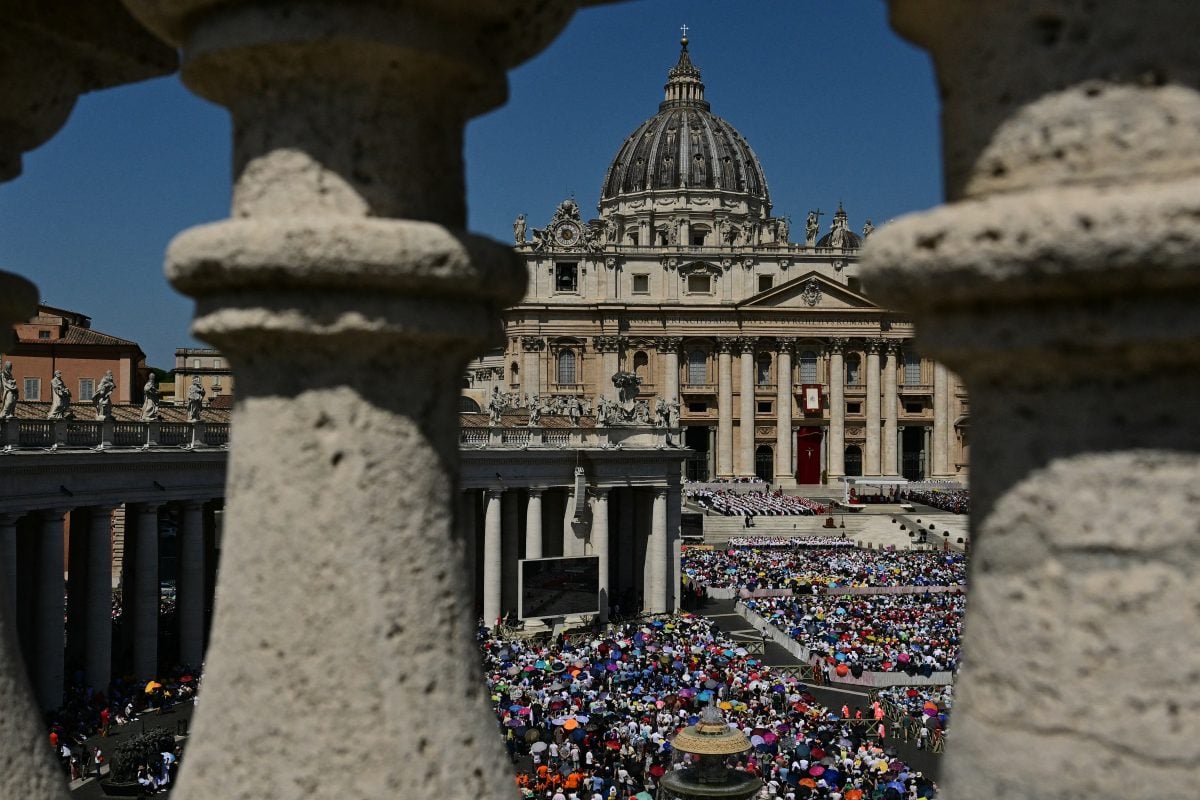A new Vatican-backed report, unveiled in Rome, calls to overhaul the global financial architecture and fix a debt system that it says is punishing Africa and other developing regions.
The Jubilee Report challenges the logic of inequity, arguing that the system is rigged to benefit creditors at the expense of debtor nations.
It advocates systemic reforms such as halting net transfers out of debt-distressed countries; expanding debt suspension initiatives; creating a global climate fund; and promoting South-South financial integration.
In short, it recommends an extensive rewrite of the rules that have long penalised Africa for its inherited debt vulnerabilities.
The document is the culmination of work by over 30 economists commissioned by late Pope Francis, co-chaired by Nobel laureate Joseph Stiglitz and former Argentine economy minister Martín Guzmán, and released by the Pontifical Academy of Social Sciences.
The report advocates changing multilateral institution policies and legislation in key jurisdictions so that creditors and debtor governments are newly incentivised to agree to more timely and sustainable debt restructurings. It says that bailouts should be ended for private creditors, with multilateral institutions including the International Monetary Fund advised to change their policies and practices to support sustainable recoveries. Developing countries are advised to extensively use capital account regulations to discourage destabilising flows and create a more stable environment for long-term investments and should invest in structural transformation.
Critical time for Africa
The report’s findings come at a critical juncture for Africa, where mounting debt is hindering progress. UNCTAD says that Africa’s public debt has increased by 183% since 2010, outpacing GDP growth nearly fourfold.
The Vatican report finds that “the consequences are particularly acute in Africa, where debt distress is most severe.” Africa is the only region where public debt has been growing faster than GDP since 2013, and around 57% of the continent’s population reside in countries that spend more on servicing external debt than on education or healthcare, it says.
As Pope Francis framed it in his 2024 address, “we need an international mechanism for debt restructuring grounded in good faith and ethical dialogue.”
His successor, Pope Leo XIV, echoed that sentiment at his May inauguration, denouncing an economic system that “marginalises the poorest.” The Jubilee Commission therefore offers in response a detailed blueprint that highlights the structural injustices underpinning Africa’s debt burden.
In a press conference unveiling the report, Father Charles Chilufya, a Jesuit priest working for the Jesuit Conference of Africa and Madagascar as director of the Justice and Ecology Office, says: “sovereign debt from a moral standpoint should not be a system that allows creditors to be repaid in full while children go hungry – a tribute from the poor while shielding the powerful.”
Unlike the G7, where most debt is domestically held and denominated in local currency, African nations owe largely to foreign, private lenders in hard currencies like the US dollar, which subsequently raises borrowing costs and amplifies the risk of default. The Tony Blair Institute for Global Change (TBI) found that countries like Ghana spend 26% of government revenue on interest payments, compared to just 3% in France.
The report states, “many developing economies face enormous investment needs, limited financing opportunities, and heightened vulnerability to external shocks. This predicament is given contemporary urgency by rapid demographic growth in many of the poorest countries, but it is rooted in historical patterns. The colonial era left behind economic structures geared toward the extraction and export of raw materials, with low levels of productive diversification and heavy dependence on imported consumer goods. This dependency has proven difficult to overcome for many societies.”
Debt crisis crowding out essential spending
Crucially, the Jubilee Report aligns with African-led efforts like those of the Africa Finance Corporation, which recently called for leveraging the continent’s $4 trillion in domestic capital for infrastructure. But that vision cannot materialise under the current debt trap. The African Development Bank Group reports that external debt stood at $1.15 trillion by the end of 2023, and the continent paid $163bn merely to service this debt the following year.
Martín Guzmán explains, “the debt crisis is crowding out investments in health, education, and climate and is making the economic and social situation dramatic in many developing economies. Pope Francis’ call was a moral act of timely leadership. In this Jubilee year, a coalition of the willing must act to tackle the debt and development crises or else inequality of opportunity will rise, and instability will spiral with worldwide medium-term destabilising consequences.”
A Vatican Jubilee, also known as a Holy Year, is a special period of forgiveness, reconciliation, and pilgrimage for the Catholic Church, typically celebrated every 25 years.
In conclusion, the Jubilee Report offers a set of recommendations aimed at addressing long-standing imbalances in the global financial system. By highlighting the disproportionate impact of debt on African countries, it underscores the need for reforms that support sustainable development and fairer financial practices.
Want to continue reading? Subscribe today.
You've read all your free articles for this month! Subscribe now to enjoy full access to our content.
Digital Monthly
£8.00 / month
Receive full unlimited access to our articles, opinions, podcasts and more.
Digital Yearly
£70.00 / year
Our best value offer - save £26 and gain access to all of our digital content for an entire year!

 Sign in with Google
Sign in with Google 



